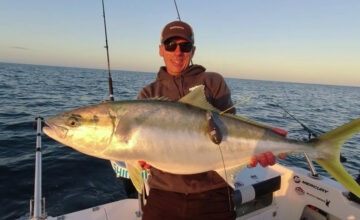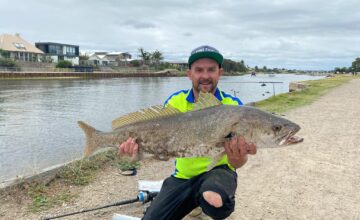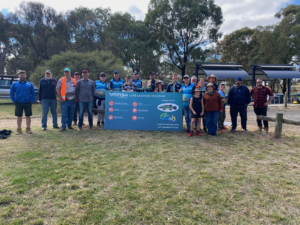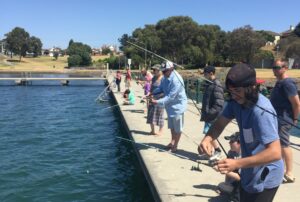February 24, 2022
Waterwatch and EstuaryWatch have recently released their Annual Achievements Report showcasing the great work their citizen scientists have accomplished during 2020-21. The state-wide program has a vision to engage, activate and empower communities to take care of and improve the health of our waterways. It supports our Catchment Management Authorities (CMAs) and Melbourne Water by providing volunteers with the opportunity to learn more about Victorian waterways and take stewardship over their local waterways.
Citizen scientists play an important role by collaborating with researchers to increase scientific knowledge of our waterways. Waterwatch and EstuaryWatch volunteers work tirelessly to assess aquatic species and habitats, record observations and monitor water quality and litter. They also monitor and collect data relating to birds, fish, platypus, frogs and water bugs. Workshops are held periodically with regional coordinators to build expertise, skills and share knowledge with the volunteer network.
The program faced numerous setbacks during the reported year including impacts from the Coronavirus pandemic such as postponement or cancellation of events and reduced capacity during the restriction periods. During this time, there was a change in the way people engaged with the programs which saw volunteers embrace technology to collect data, connect with the volunteer network and experts via online forums and webinars, and research historical waterway data and information.
Waterwatch and EstuaryWatch citizen scientists should be commended for their invaluable contribution to the program. During 2020-21, there were 2,477 active volunteers across 109 groups. There were also 7,737 event participants and 702 active monitoring sites. Volunteers contributed a total of 83,227 volunteer hours to collect data and care for our waterways. This is equivalent to an incredible 11,097 volunteer days which provides an economic value of $3,473,895 of volunteer effort during 2020-21.
Waterwatch and EstuaryWatch programs in regional Victoria are funded through the Victorian Government and the Greater Melbourne programs are funded via Melbourne Water and other partners.
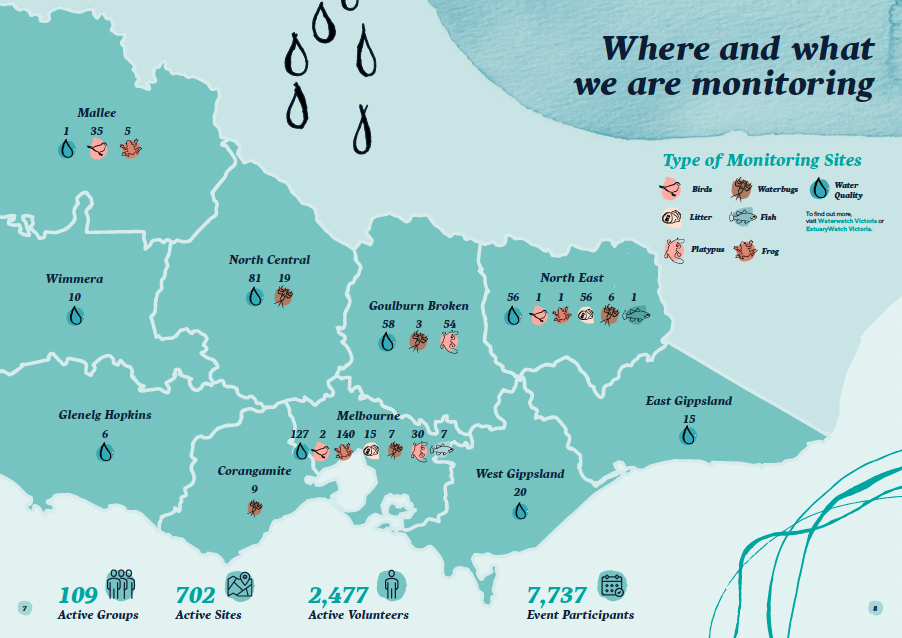
WATERWATCH & ESTUARYWATCH ACHIEVEMENTS BY REGION
In the North Central catchment, the CMA established a new citizen science project partnering with Waterwatch volunteers to monitor 13 sites along the Campaspe River and major tributaries. Further to this, 11 local schools are participating in the project as ‘River Detectives’. The data collected by citizen scientists will be used to create a River Health Snapshot Report for the Campaspe which tracks the improvements in ecological condition. Citizen scientists play a vital role in assisting natural resource managers to make important decisions about the management of our waterways.
In the Corangamite region, the passion from the local community has been a driving force behind the Barwon Estuary Monitoring Program Phase 2 (BEMP2). Following on from Phase 1 in 2018/2019, the BEMP2 has focused on the Barwon River Estuary at Barwon Heads and Ocean Grove after users of the estuary expressed concerns about public health risks. They wanted to find out if there was bacterial pollution present in the waterway from various sources of pollution. Citizen scientists are monitoring the water quality weekly across nine sites in the estuary. This includes measuring the clarity of the water, pH, ammonia and general water quality observations. The data will inform an understanding of how the water quality changes by comparing ‘normal’ conditions to after peak rainfall and if any risk is posed to humans.
In East Gippsland, citizen scientists have been investigating Gippsland Lakes Pelican populations. There are only two Australian Pelican breeding sites remaining in Victoria with one of these locations in the Gippsland Lakes region. At almost 100 locations across the Gippsland Lakes, the community annually participate in the Great Pelican Count where they count pelicans at the same time, on the same day across the different locations. The project aims to track movement, population changes, health and lifestyles of pelicans.
The Glenelg Hopkins CMA have some exciting things coming up for their EstuaryWatch volunteers including developing a large-scale river restoration program on the lower Hopkins and Merri systems. It’s anticipated to include riparian and in-stream rehabilitation works, as well as community engagement and education.
In the Goulburn Broken region, the Creightons Creek Waterwatch group are collecting robust long-term data across Creightons Creek and its tributaries. Monthly measurements include air and water temperature, electroconductivity, turbidity and pH across nine different sites. The group have streamlined the process by allocating a collection point where one volunteer, John Neilson, tests each water sample and swiftly updates the database.
In the Mallee region, the Red Cliffs Scouts Group have been assisting the Mallee CMA in their field trial regarding the Black Box tree life cycle in the Hattah Lakes.
In the North East and Wimmera, primary school students participated in the River Detectives program.
In West Gippsland, the Waterwatch program celebrated the achievements of their longstanding volunteers.
In Melbourne, volunteers collected an estimated 40,000 pieces of litter as part of Melbourne Water’s Litter Action Project which has concluded after almost four years. During the project, there were 85 clean up events held with almost 8,000 volunteer hours contributed to the project.
LEARN MORE BELOW
Visit the following websites to learn more about these programs:
- Waterwatch
- EstuaryWatch
- River Detectives
- National Waterbug Blitz
- Australian Citizen Science Association


